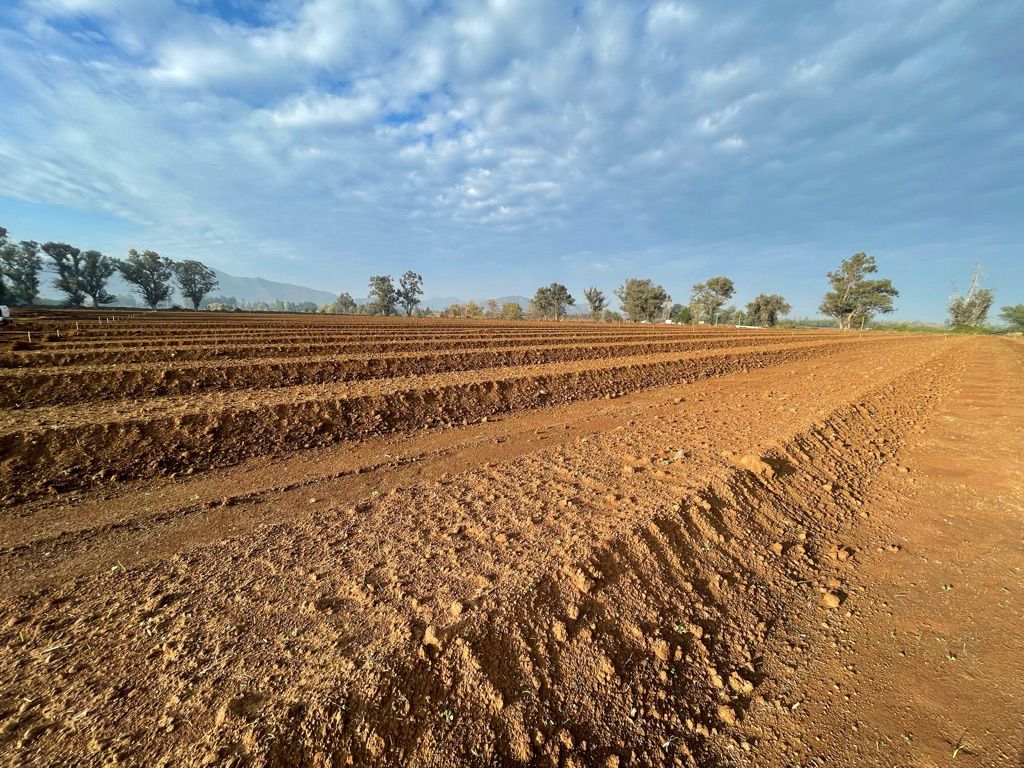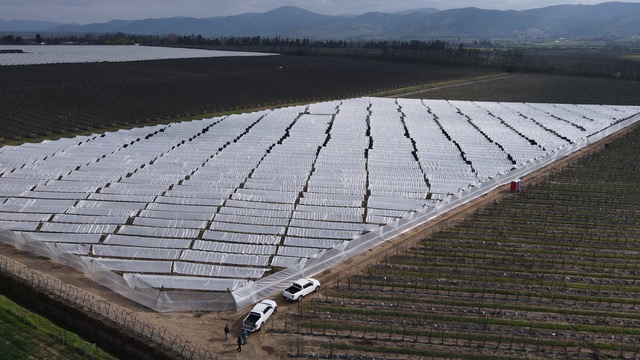Pollination, care of ecosystems, sanitary and nutritional management of beehives and the serious effects of climate change are some of the points to consider, according to researcher Emilio Cáceres.
On May 20, as every year, World Bee Day was commemorated, and for 2023 the UN gave the motto “Commitment to bees: for an agricultural production that respects pollinators”. In this context, the INIA Rayentué Regional Research Center, located in the O'Higgins Region, has been working on various aspects to understand the phenomenon and help environmentally with flowering, pollination and beekeeping production, always with a commitment to ecosystems.
Beekeeping plays a fundamental role in our society and in the ecological balance. Bees, as the main pollinators, play a crucial role in the reproduction of many species, ensuring their diversity and food production. In addition, honey and other bee products generated through the tireless work of bees are appreciated both in gastronomy and in the cosmetics and medicine industries.
Emilio Cáceres, agricultural engineer and INIA Rayentué researcher, with several years of experience in the field, highlights the importance of bees for the development of agriculture. In fact, according to the researcher, the main contribution is the “maintenance and recovery of ecosystems fractured by changes in land use due to real estate business or large extensions of agricultural and forestry monocultures. When this happens, the system becomes very vulnerable, since, by losing genetic diversity, plant species are more susceptible to pests and diseases. Bees and beekeeping also play a fundamental role for agroindustry, as does pollination, although there is still much to be investigated about this (pollination), its duration times and its environmental impacts.”
“Another important role is, of course, the production of honey, a food of nutritional importance. But beyond that there is the large amount of by-products that can be obtained, such as propolis, wax, royal jelly, pollen, live genetic material, among others. These by-products are very important, but in Chile they are still not given the importance they really have due to the difficulty involved in their production and development,” says Cáceres, who also has several beehives, where he takes advantage of studying them and obtaining valuable information for their production and conservation.
But in the current scenario of Climate Change, and especially the El Niño phenomenon - which according to the scientific world will not only become stronger, but also last longer - the concern logically shifts to the survival of bees.
The effects of El Niño can be diverse and depend on the specific region and local conditions, however, there are certain common factors to consider, such as decreased availability of nectar and pollen, changes in flowering patterns, increased incidence of diseases and pests, and loss of habitat and diversity, among other factors.
“The basis of all this is how we manage to maintain our ecosystems beyond the sale of honey. We must be able to focus on the ecosystem support that bees give us, since this is essential to advance in sustainable productions.“, concludes Cáceres.
Given all of the above, INIA Rayentué has begun to develop projects related to bees and their ecosystems, which it hopes will be able to materialize soon and thus advance in the care of a living being that is fundamental to our survival, such as the bee.








